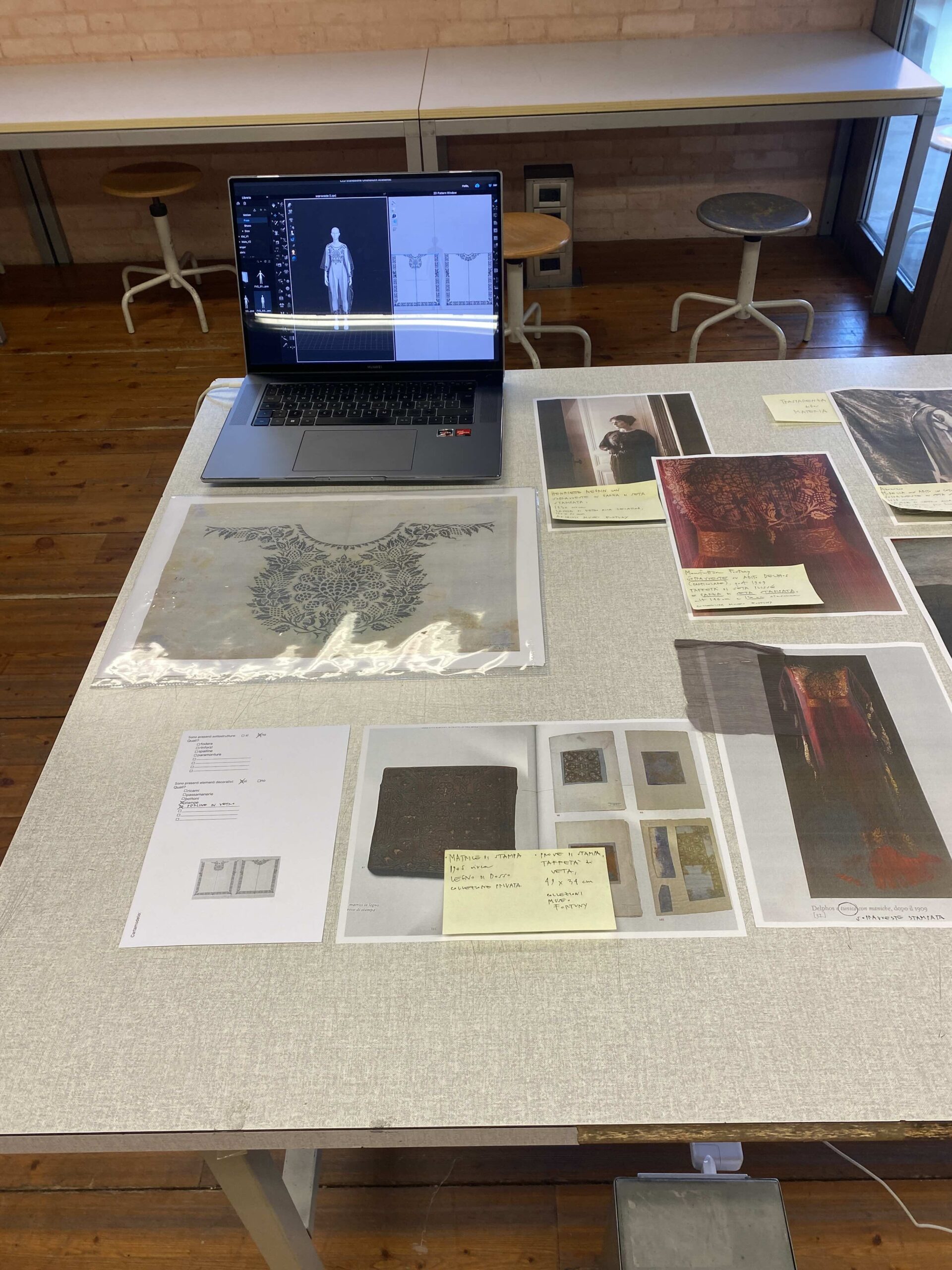
EFHA World 20.10.2025
13.03.2023
crafteuropean costumeEuropean craftGreek fashion
Crafting our way – quite literally! – through the history and present of weaving in Greece
In the context of the CRAFTED project, in July 2022 we explored the woven stories of the Peloponnese, to show the complexity of European crafts and recover some testimonies about specific local and global aspects of Greek weaving. The support of Angeliki Rumelioti of the Basil Papantoniou Foundation was instrumental in allowing us in a world of colours, materials, and ancient techniques, and finally produce four videos now part of the #craftingheritage series.
The first person we encountered was Ioanna Papantoniou, founder and president of the Basil Papantoniou Foundation in Nafplio, who unveiled the story of the Plafi, a carpet made by the women of a village for the wedding of one of them. The Plafi stands as the material testimony of the complex movements and cultural influences that form Greek identity today.
We then moved to Leonidio to meet visual artist Loukia Richards. There, standing barefoot on a beautiful hand-woven kilim, a carpet that has belonged to her family for generations, learned from her how Craft can be rightfully considered an act of feminine entrepreneurship and even Political Art.
But craft is not just in houses or museums: it is alive, and learning and teaching are actions intrinsically connected with its preservation. We learned this at SEN Heritage Looms, an institution based in Athens, where the director Sophia Tsourinaki explained us how weaving represents an important activity for Greece, present in its past and also in its present, and we are sure will play a big role in the future of the country. She recovers looms, tools and techniques to teach to a community of young weavers.
What makes craft important here though is people. Many are the voices that can tell this story, from the memories of the women of Tsitalia, to the experience of contemporary weavers who decided to turn traditions into their life work, as Maria Gonidou and Thomai Rodopoulou-Psarologou are the object of the last video devoted to the community aspect of Craft.